Introduction:
In July 2025, the U.S. House of Representatives first listed the crypto industry as a core issue, launching a week-long 'Crypto Week' while reviewing three key bills: the GENIUS Stablecoin Bill, the CLARITY Digital Asset Classification Bill, and the Anti-CBDC Central Bank Digital Currency Bill. This event not only stirred the crypto circle but also became a symbolically significant node in the global financial landscape.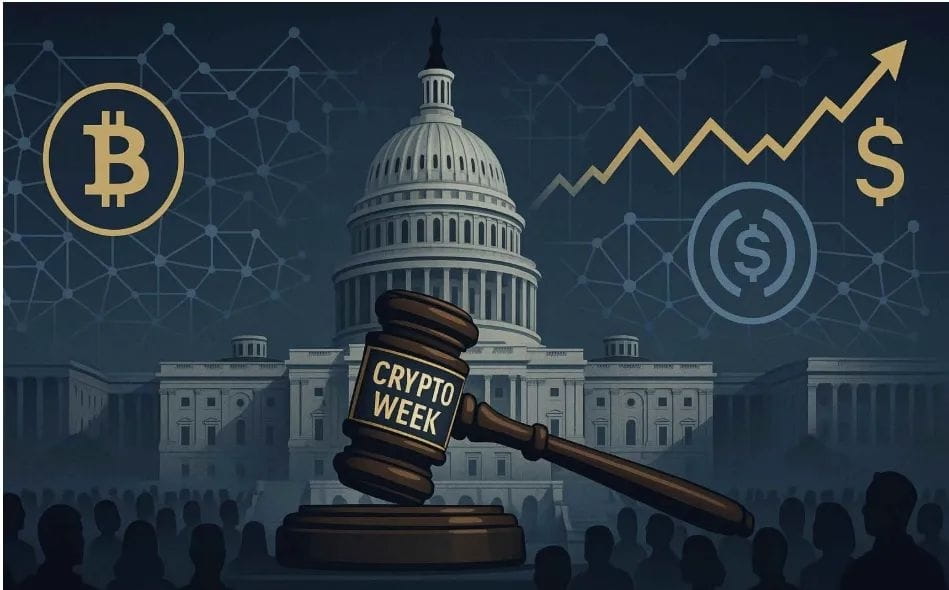
But we must see clearly that this is not just a victory for the 'crypto circle.' Crypto is merely a tool; behind the bill lies a deep adjustment of America's global strategy and a sign of the digital transformation of dollar hegemony.
In this issue, we will take you through the regulatory facade to directly address the deeper intentions behind these three bills:
This is a bloodless institutional revolution, the third reconstruction of the American monetary system.
The U.S. is not moving towards decentralization, but rather reshaping dollar hegemony with on-chain technology.
If SWIFT is dollar 1.0, then USDC might be dollar 3.0.
If you find this type of content interesting, don't forget to follow the channel. We will analyze global policy trends from a financial narrative perspective in each episode.
I. Summary of the bill's content
The three bills outline the main framework for America's future crypto financial ecosystem from the perspectives of stablecoins, asset classification, and national digital currency authority:
GENIUS Stablecoin Bill: Requires 1:1 dollar or U.S. debt reserves, federal regulation, and mandatory auditing to prevent a Terra-style collapse. This move will significantly enhance the compliance of mainstream stablecoins like USDC and USDT, pushing them into mainstream payment systems such as banks and e-commerce.
CLARITY Bill: Clarifies the regulatory boundaries between the SEC and CFTC, categorizing most digital assets as commodities and providing developers with liability exemptions. Platforms like Coinbase and Uniswap will thus gain a clear compliance path, helping the prosperity of the Web3 and NFT ecosystems.

Anti-CBDC Bill: Prohibits the Federal Reserve from issuing any form of digital dollar, emphasizing decentralized financial freedom and implicitly supporting privacy coins and anonymous trading technologies.

These three elements constitute a three-in-one regulatory blueprint for U.S. crypto compliance, dollar digitization, and anti-central bank centralization.
II. Is the U.S. initiating the third capital revolution?
The wave of legislation behind this is actually a systematic 'third capital revolution' initiated by the United States:
The first capital revolution occurred during the colonial period when the lands and gold of the New World attracted European immigrants and Asian gold seekers.
The second time was during the construction of the post-war dollar system, where the U.S. established the Bretton Woods system by providing a secure political environment and military protection, attracting global post-war capital.
Now, the U.S. is attempting to create a 'global capital safe harbor' under the guise of decentralization through on-chain legislation and digital tools:
Stablecoins represented by USDC have become the new generation of dollar tools.
Under the anti-CBDC banner, the U.S. distinguishes itself from the monitoring-style digital currencies of Europe, China, Japan, and South Korea, turning to attract 'financial refugees.'
Relaxing developer regulatory responsibilities and encouraging capital and talent to 'migrate on-chain.'
What is the underlying motivation? In short: the national debt is too high, interest is too expensive, dollars are flowing out, and Buffett has been rushing into Japan since 2021!
To alleviate this situation, the U.S. has imposed tariffs externally to increase fiscal revenue; on the other hand, it is opening the door for capital through crypto legislation, attracting global funds wanting to hide wealth to bypass the SWIFT system and legally enter the U.S. financial system.
Although Trump came to power and global trade entered a phase of de-globalization, private funds accelerated globalization!
This is a strategically clever structural shift. Rather than being a 'technological innovation,' it is more like a digital rebalancing project for the dollar system, aimed at making global high-net-worth capital 'willingly' take over U.S. debt.
If you're hearing this, are you starting to rethink America's attitude towards crypto? Feel free to leave a comment on your thoughts regarding the term 'third capital revolution'!
III. Is America really going to become a 'national-level dark web'?
Many people question: Does America really want to become a large 'money laundering paradise'? Like a digital Hong Kong, or even a national-level dark web? This statement may seem exaggerated, but it's not without basis.
In the past, dollar hegemony relied on the SWIFT system + issuance of U.S. debt; now the logic has shifted to on-chain dollars + digital auditing.
The GENIUS Bill essentially provides national-level compliance endorsement for 'dollar cryptoization,' creating a 'legal, auditable, globally applicable' digital dollar alternative.
The result is:
1. Funds from capital-controlled countries can legally hold USDC and participate in DeFi, eventually landing in the U.S.
2. High-net-worth individuals can bypass the traditional banking system and use anonymous identities to hide wealth on-chain, while the U.S. only needs to regulate the entry and settlement.
On the other hand:
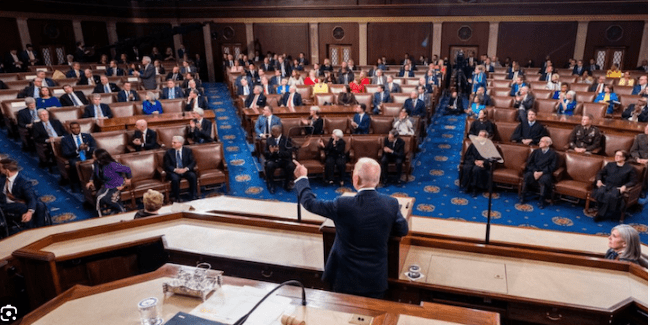
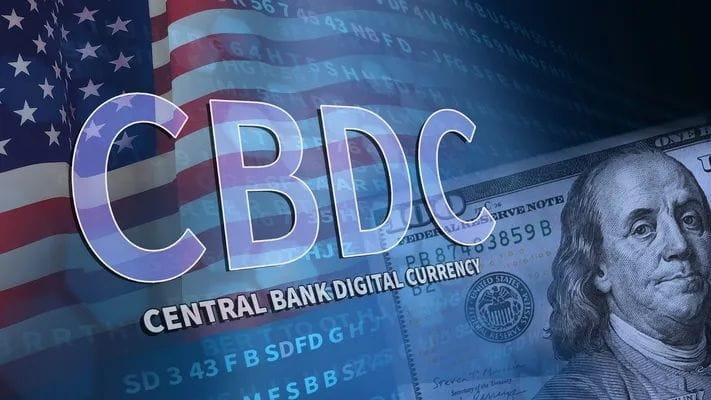
Thus, the U.S. is indeed building a new financial system of 'high transparency entry + high freedom assets.' It's not a completely dark market like the dark web, but rather a gray compliance channel under institutional packaging — a institutionalized 'national-level money laundering port.' It accommodates the maximum possible flow of funds anonymously while maintaining a superficial legal compliance.
This makes it more like a fusion of 'a large Hong Kong + Swiss banks + Ethereum nodes.'
IV. The true value for crypto investors
As cryptocurrency investors, we only need to look at two aspects of the macro environment: first, whether the macro monetary policy is easing; second, whether Wall Street is willing to bet on crypto assets, meaning whether the money will flow in.
The advancement of this bill marks that crypto assets are being integrated into the logic of dollar sovereignty and the U.S. capital system, becoming a part of American financial tools. This is a signal for Wall Street — crypto is no longer a risk asset but a 'new dollar infrastructure.'
Therefore, we expect that the biggest beneficiaries in the early stages will be Bitcoin and Ethereum. Bitcoin has gained mainstream recognition among Republicans due to its scarcity and 'digital gold' narrative; meanwhile, Ethereum, as the 'smart contract foundation' and the cornerstone of stablecoins, still has a 30% distance from its previous high when Bitcoin surpassed its high of 80% before 2021.
In financial transactions, this is a classic case of picking up cigarette butts!
As for Sui, Solana, and ICP, Wall Street may know very little! Buffett has said he doesn't understand Bitcoin, let alone these smaller coins. Therefore, I suggest that once altcoins have made a profit, it's time to move to these two mainstream ones.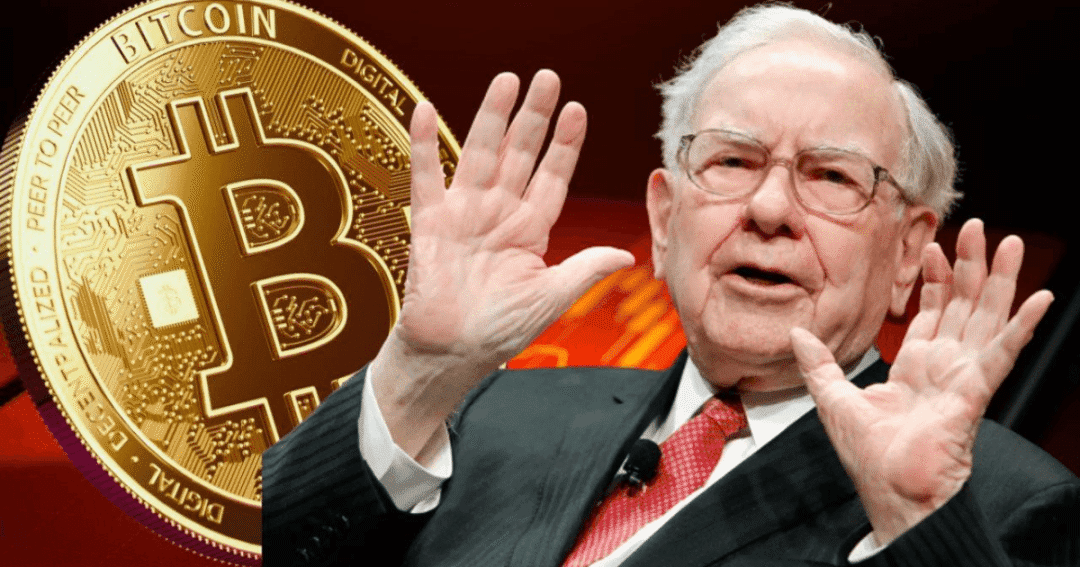
Of course, in the medium to long term, the current dilemma in the crypto space is that aside from Bitcoin and Ethereum, other crypto projects have fallen into a trap of innovation, even beginning to engage in scams and running away, to the point that while blockchain isn't dead, it's pretty close.
However, the CLARITY bill will alleviate the SEC's enforcement pressure on crypto entrepreneurs, creating a predictable and mild entrepreneurial environment. As Sun Yuchen said, previously they were being driven away by regulations from various countries, but now they can receive financial shelter in the U.S.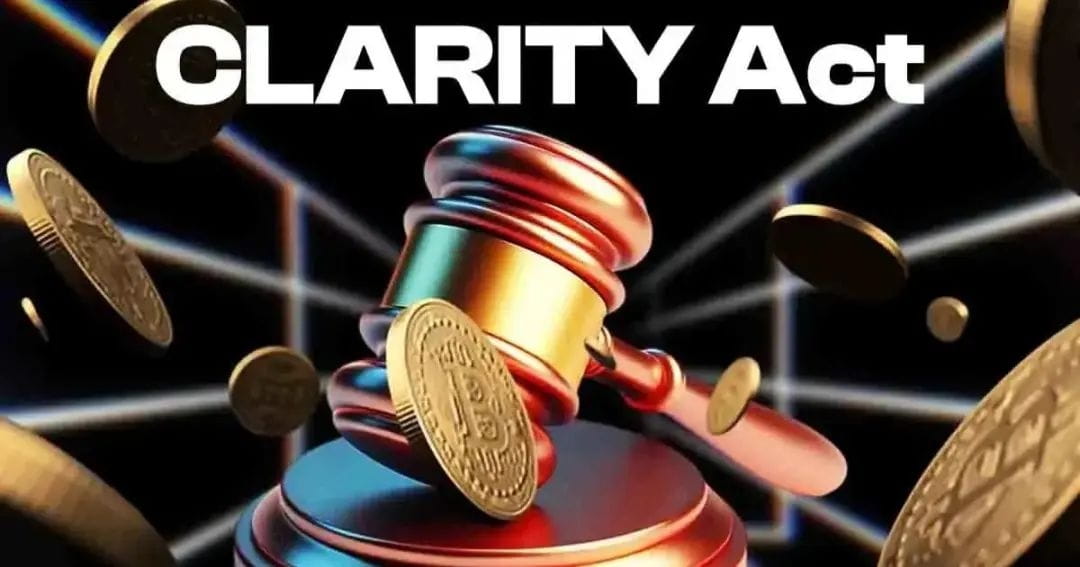
In a compliant environment, providing a good business environment for entrepreneurs, perhaps Sun Yuchen's project can also succeed.
This not only injects confidence into the Web3, DeFi, and NFT ecosystems but could also help nurture true next-generation fintech giants in the U.S.

After the crypto bill, are you more confident in Ethereum? Regarding why Ethereum has seen such a significant increase recently, can you hold for the long term and reach $8,000? You might want to check this topic: (Ethereum will return to $8,000, the ETH flywheel has quietly started!).
Do you think Ethereum will really become the 'gold bar among cigarette butts'? Leave a comment to let us know your expectations for this market cycle!
Crypto legislation is not the end, but the beginning of a new monetary order. The third capital revolution has quietly begun; the only question is: which side are you on? See you next time! #美国众议院通过三项加密货币法案